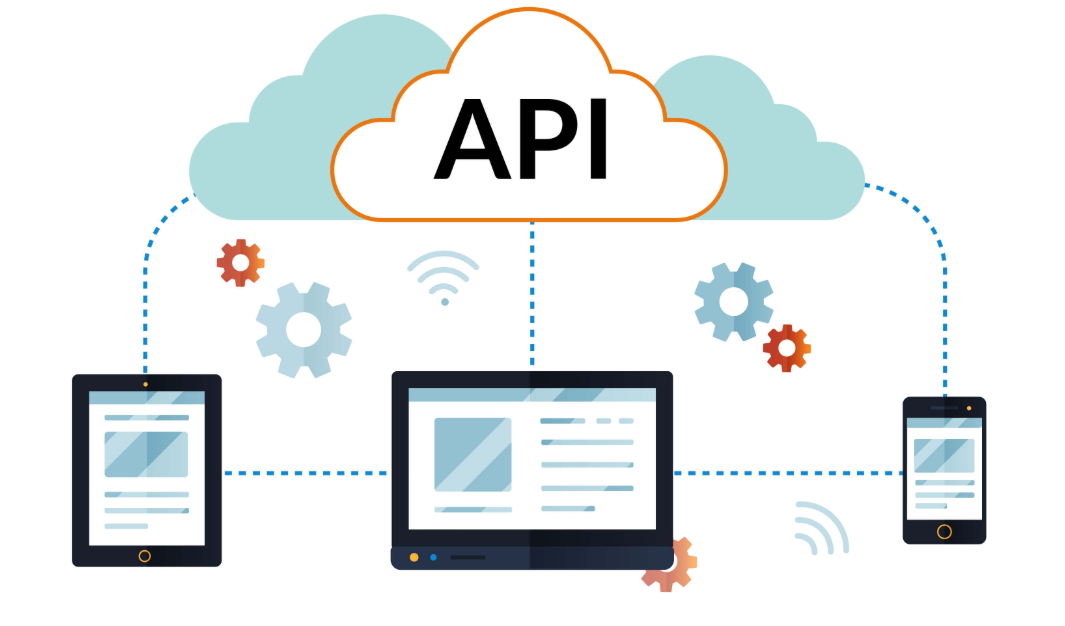Best Customer Review And Feedback API Integration Service

In the bustling realm of e-commerce, where the digital marketplace serves as the modern agora, the resonance of a brand often hinges upon the collective voice of its customers. Enter the pivotal role of customer review and feedback API integration service, a technological marvel that transcends mere data aggregation to sculpt a narrative of consumer sentiment. Picture this: a dynamic ecosystem where every purchase, every interaction, becomes a thread in the rich tapestry of customer experience. This integration service acts as the conduit, the invisible hand that orchestrates the symphony of feedback, seamlessly weaving together disparate voices into a harmonious chorus. Through the adept utilization of APIs, this service transcends the limitations of traditional feedback mechanisms, offering real-time insights that pulse with the heartbeat of the market. Imagine a boutique artisanal shop nestled in the labyrinthine alleys of the internet, its success contingent not only upon the quality of its wares but also the resonance of its clientele.
With the customer review and feedback API integration service, this humble emporium becomes a nexus of connectivity, a virtual agora where patrons converge to share their experiences and shape the narrative of the brand. But the impact extends far beyond the realm of commerce; it permeates the very fabric of society, empowering consumers with a voice that resonates beyond the confines of individual transactions. From the bustling marketplace to the serene realms of cyberspace, this integration service serves as the connective tissue that binds consumers and businesses in a symbiotic dance of feedback and innovation. No longer relegated to the periphery, the customer becomes the protagonist, their feedback a potent catalyst for change and evolution. For the discerning merchant, armed with the insights gleaned from this integration service, the path to success becomes illuminated, navigable amidst the turbulent seas of competition.
Gone are the days of conjecture and speculation; in their stead emerges a data-driven approach that empowers businesses to adapt and thrive in an ever-evolving landscape. Whether fine-tuning product offerings, refining marketing strategies, or fostering deeper connections with clientele, the possibilities are as boundless as the digital horizon. And yet, amidst the dizzying array of ones and zeros, it’s important to remember the human element at the heart of it all. Behind every review, every byte of data, lies a story waiting to be heard, a narrative waiting to unfold.
In harnessing the power of the customer review and feedback API integration service, businesses embark on a journey of empathy and understanding, forging bonds that transcend the transactional to embrace the deeply human longing for connection and community. So, as we navigate this brave new world of e-commerce and connectivity, let us not forget the transformative potential of a simple review, nor the profound impact of a well-integrated API development service. For in their union lies the promise of a marketplace that not only thrives but also resonates with the authentic voice of its patrons, echoing through the annals of digital history.
Why Use Customer Review And Feedback API Integration Service?

Data Aggregation Efficiency: Customer review and feedback API integration service streamlines the process of collecting feedback from various sources, such as social media, e-commerce platforms, and third-party review sites, ensuring all relevant data is aggregated efficiently.
Real-Time Monitoring: Through API integration, businesses can monitor customer feedback in real-time, enabling them to promptly respond to both positive and negative reviews, address issues, and capitalize on opportunities to enhance customer satisfaction.
Automation: By automating the feedback collection process, businesses save time and resources that would otherwise be spent manually gathering and organizing customer reviews from disparate sources.
Comprehensive Insights: The integration service provides businesses with a holistic view of customer sentiment across multiple touchpoints, allowing them to identify trends, patterns, and areas for improvement that inform strategic decision-making.
Proactive Customer Engagement: Armed with real-time insights, businesses can proactively engage with customers, addressing concerns, resolving issues, and fostering positive relationships that lead to increased loyalty and advocacy.
Tailored Offerings: Data-driven insights obtained through the integration service enable businesses to tailor their products, services, and marketing efforts to better align with customer preferences and expectations, ultimately driving revenue and growth.
Competitive Advantage: By staying abreast of customer feedback and adapting their strategies accordingly, businesses gain a competitive edge in the marketplace, positioning themselves as responsive and customer-centric brands.
Brand Reputation Management: Effective management of customer reviews and feedback through API development and integration helps businesses maintain a positive brand reputation, mitigating the impact of negative feedback while amplifying the influence of positive reviews.
Maximized ROI: Leveraging the insights gleaned from the integration service, businesses can optimize their operations, marketing campaigns, and product offerings to maximize return on investment and drive sustainable growth.
Adaptability and Scalability: Customer review and feedback API integration services are scalable and adaptable to businesses of all sizes and industries, empowering them to evolve and thrive in an ever-changing marketplace.
What Is The Benefits Of Customer Review And Feedback API Integration Service?

Certainly! Here are the benefits of customer review and feedback API integration service broken down into points:
Enhanced Customer Engagement: The integration service allows businesses to engage with customers more effectively by gathering feedback from various channels, facilitating two-way communication, and demonstrating responsiveness to customer concerns.
Improved Customer Satisfaction: By promptly addressing issues raised in customer reviews and feedback, businesses can enhance customer satisfaction levels, leading to increased loyalty and repeat business.
Data-Driven Decision Making: The service provides valuable insights into customer preferences, pain points, and trends, empowering businesses to make informed decisions regarding product development, marketing strategies, and customer service initiatives.
Streamlined Feedback Collection: API integration automates the process of collecting feedback from multiple sources, eliminating the need for manual data entry and ensuring all feedback is captured in a timely manner.
Real-Time Monitoring: Businesses can monitor customer feedback in real-time, enabling them to identify emerging issues, respond promptly to customer inquiries, and capitalize on positive feedback to strengthen brand reputation.
Brand Reputation Management: By effectively managing customer reviews and feedback, businesses can protect and enhance their brand reputation, addressing negative feedback diplomatically and leveraging positive feedback to build trust and credibility.
Competitive Advantage: Businesses that utilize customer review and feedback API integration gain a competitive edge by staying attuned to customer needs and preferences, adapting their strategies accordingly, and outperforming competitors in terms of customer satisfaction and loyalty.
Increased Sales and Revenue: Satisfied customers are more likely to make repeat purchases and recommend the business to others, leading to higher sales and revenue generation over time.
Scalability and Flexibility: The integration service is scalable and adaptable to businesses of all sizes and industries, allowing them to customize feedback collection processes to suit their unique needs and objectives.
Cost-Efficiency: By automating feedback collection and analysis processes, businesses can reduce overhead costs associated with manual data entry and analysis, maximizing efficiency and profitability in the long run.
What Is The Real-Time Use Of Customer Review And Feedback API Integration Service?
Certainly! Here are the real-time uses of customer review and feedback API integration service broken down into points:
Instant Feedback Collection: The API integration service collects customer feedback from various channels in real-time, ensuring that businesses receive feedback as soon as it’s submitted by customers.
Immediate Issue Resolution: Businesses can monitor customer feedback in real-time and address issues or concerns as they arise, enabling swift resolution and preventing potential escalation.
Prompt Customer Engagement: Real-time monitoring allows businesses to engage with customers promptly, acknowledging their feedback, addressing any issues, and demonstrating responsiveness.
Quick Identification of Trends: By analyzing feedback in real-time, businesses can identify emerging trends or patterns in customer sentiment, enabling them to respond proactively and make necessary adjustments to products or services.
Opportunity Capitalization: Positive feedback can be leveraged immediately to enhance brand reputation, drive sales, or inform marketing strategies, maximizing the impact of positive customer experiences.
Prevention of Negative Virality: Real-time monitoring helps businesses catch and address negative feedback before it escalates and spreads across social media or review platforms, mitigating potential damage to brand reputation.
Dynamic Performance Evaluation: Businesses can continuously monitor their performance in real-time by tracking customer feedback, allowing for ongoing evaluation and improvement of products, services, and customer experiences.
Adaptive Marketing Strategies: Real-time insights into customer sentiment enable businesses to adjust their marketing strategies on the fly, tailoring messaging and promotions to align with current customer preferences and trends.
Agile Decision Making: Armed with real-time feedback, businesses can make agile and informed decisions regarding product launches, feature updates, or customer service enhancements, ensuring they remain responsive to customer needs and market dynamics.
Enhanced Customer Satisfaction: By addressing customer feedback promptly and proactively, businesses can enhance overall customer satisfaction levels in real-time, fostering stronger relationships and loyalty among their customer base.
Types Of Customer Review And Feedback API Integration Service?
Customer review and feedback API integration services come in various types, each offering unique features and functionalities to suit different business needs. Here are some common types of these services:
Social Media Integration: These services focus on integrating with popular social media platforms like Facebook, Twitter, Instagram, and LinkedIn to gather and analyze customer reviews and feedback posted on these channels.
E-commerce Platform Integration: These services specialize in integrating with e-commerce platforms such as Shopify, WooCommerce, Magento, and BigCommerce, allowing businesses to collect and manage customer reviews and feedback directly from their online storefronts.
Third-Party Review Site Integration: These services connect with third-party review sites like Yelp, Google My Business, TripAdvisor, and Trustpilot, enabling businesses to aggregate and monitor reviews from across the web in one centralized dashboard.
CRM Integration: Some customer review and feedback API integration services integrate seamlessly with Customer Relationship Management (CRM) systems like Salesforce, HubSpot, and Zoho CRM, allowing businesses to track customer feedback alongside other customer data for comprehensive insights.
Sentiment Analysis Integration: These services utilize advanced sentiment analysis algorithms to analyze the tone and sentiment of customer reviews and feedback, providing businesses with actionable insights into customer sentiment and preferences.
Survey Integration: Some services offer integration with survey platforms such as SurveyMonkey, Typeform, and Google Forms, allowing businesses to create and distribute surveys to collect customer feedback and insights.
Email Integration: These services integrate with email marketing platforms like Mailchimp, Constant Contact, and SendGrid, enabling businesses to gather feedback through email campaigns and newsletters and automate follow-up communications based on customer responses.
Analytics Integration: These services offer integration with analytics platforms like Google Analytics and Adobe Analytics, allowing businesses to correlate customer feedback data with website or app usage data for deeper insights into customer behavior and preferences.
API Aggregator: Some services act as API aggregators, consolidating data from multiple sources such as social media, e-commerce platforms, and review sites into a single API, simplifying data access and management for businesses.
Custom Integration Solutions: Businesses can also opt for custom integration solutions tailored to their specific requirements, leveraging APIs and development resources to build bespoke customer review and feedback management systems aligned with their unique business goals and workflows.
Some Basics Types Of Customer Review And Feedback API Integration Services
Social Media API Integration
| import requests
# Facebook Graph API credentials access_token = ‘YOUR_ACCESS_TOKEN’ page_id = ‘YOUR_PAGE_ID’
# Define function to fetch reviews from Facebook Page def fetch_reviews(page_id, access_token): url = f”https://graph.facebook.com/v12.0/{page_id}/ratings?access_token={access_token}” response = requests.get(url) data = response.json() if ‘data’ in data: reviews = data[‘data’] return reviews else: print(“Error fetching reviews:”, data) return []
# Example usage: if __name__ == “__main__”: reviews = fetch_reviews(page_id, access_token) for review in reviews: print(f”Rating: {review[‘rating’]}”) print(f”Review Text: {review.get(‘review_text’, ‘N/A’)}”) print(f”Reviewer: {review[‘reviewer’][‘name’]}”) print(f”Review Date: {review[‘created_time’]}”) print() |
E-commerce Platform Integration
| import requests
# Shopify API credentials shop_url = ‘YOUR_SHOP_URL’ api_key = ‘YOUR_API_KEY’ api_password = ‘YOUR_API_PASSWORD’
# Define function to fetch product reviews from Shopify store def fetch_product_reviews(product_id): url = f”https://{shop_url}/admin/api/2022-01/products/{product_id}/reviews.json” response = requests.get(url, auth=(api_key, api_password)) if response.status_code == 200: reviews_data = response.json() reviews = reviews_data[‘reviews’] return reviews else: print(“Error fetching product reviews:”, response.text) return []
# Example usage: if __name__ == “__main__”: # Replace ‘product_id’ with the ID of the product you want to retrieve reviews for product_id = ‘YOUR_PRODUCT_ID’ reviews = fetch_product_reviews(product_id) for review in reviews: print(f”Rating: {review[‘rating’]}”) print(f”Review: {review[‘body’]}”) print(f”Reviewer: {review[‘author’]}”) print(f”Review Date: {review[‘created_at’]}”) print() |
Third-Party Review Site Integration
| import requests
# Yelp Fusion API credentials api_key = ‘YOUR_API_KEY’
# Define function to fetch business reviews from Yelp def fetch_business_reviews(business_id): url = f”https://api.yelp.com/v3/businesses/{business_id}/reviews” headers = {‘Authorization’: f’Bearer {api_key}’} response = requests.get(url, headers=headers) if response.status_code == 200: reviews_data = response.json() reviews = reviews_data[‘reviews’] return reviews else: print(“Error fetching business reviews:”, response.text) return []
# Example usage: if __name__ == “__main__”: # Replace ‘business_id’ with the ID of the business you want to retrieve reviews for business_id = ‘YOUR_BUSINESS_ID’ reviews = fetch_business_reviews(business_id) for review in reviews: print(f”Rating: {review[‘rating’]}”) print(f”Review: {review[‘text’]}”) print(f”Reviewer: {review[‘user’][‘name’]}”) print(f”Review Date: {review[‘time_created’]}”) print() |
CRM Integration
| import requests
# Salesforce API credentials username = ‘YOUR_USERNAME’ password = ‘YOUR_PASSWORD’ security_token = ‘YOUR_SECURITY_TOKEN’ client_id = ‘YOUR_CLIENT_ID’ client_secret = ‘YOUR_CLIENT_SECRET’
# Authenticate with Salesforce API url = ‘https://login.salesforce.com/services/oauth2/token’ payload = { ‘grant_type’: ‘password’, ‘client_id’: client_id, ‘client_secret’: client_secret, ‘username’: username, ‘password’: password + security_token } response = requests.post(url, data=payload) access_token = response.json()[‘access_token’]
# Define function to fetch customer reviews def fetch_customer_reviews(): # Your code to fetch reviews from a source like Yelp, Google, or a custom API # For demonstration purposes, let’s assume you have a list of reviews already reviews = [ { ‘rating’: 5, ‘review_text’: ‘Great product!’, ‘customer_name’: ‘John Doe’ }, { ‘rating’: 4, ‘review_text’: ‘Good service, but room for improvement.’, ‘customer_name’: ‘Jane Smith’ } ] return reviews
# Define function to create records in Salesforce def create_records_in_salesforce(reviews): url = ‘https://yourinstance.salesforce.com/services/data/v53.0/sobjects/Review__c/’ headers = { ‘Authorization’: f’Bearer {access_token}’, ‘Content-Type’: ‘application/json’ } for review in reviews: payload = { ‘Rating__c’: review[‘rating’], ‘Review_Text__c’: review[‘review_text’], ‘Customer_Name__c’: review[‘customer_name’] } response = requests.post(url, headers=headers, json=payload) if response.status_code == 201: print(‘Record created successfully’) else: print(‘Failed to create record:’, response.text)
# Example usage: if __name__ == “__main__”: reviews = fetch_customer_reviews() create_records_in_salesforce(reviews) |
Email Integration
| import os from sendgrid import SendGridAPIClient from sendgrid.helpers.mail import Mail
# SendGrid API key SENDGRID_API_KEY = ‘YOUR_SENDGRID_API_KEY’
# Define function to send review request emails def send_review_request_email(customer_email): message = Mail( from_email=’your@example.com’, to_emails=customer_email, subject=’We value your feedback!’, html_content='<p>Dear valued customer,</p><p>We hope you are enjoying our products/services. ‘ ‘We would greatly appreciate it if you could take a moment to leave us a review ‘ ‘and share your feedback.</p><p>Thank you for your support!</p>’ ) try: sg = SendGridAPIClient(SENDGRID_API_KEY) response = sg.send(message) print(‘Review request email sent successfully’) except Exception as e: print(‘Failed to send review request email:’, str(e))
# Example usage: if __name__ == “__main__”: # Replace ‘customer_email’ with the email address of the customer you want to send the review request to customer_email = ‘customer@example.com’ send_review_request_email(customer_email) |
How Customer Review And Feedback API Integration Service Is A Good Choice?
Certainly! Here are several points highlighting why customer review and feedback API integration service is a good choice:
Real-Time Insights: Integration services provide real-time access to customer feedback, enabling businesses to promptly respond to customer concerns and capitalize on positive feedback, leading to improved customer satisfaction.
Efficiency: By automating the process of collecting and aggregating feedback from various sources, integration services save businesses time and resources, allowing them to focus on addressing customer needs and improving their offerings.
Data-Driven Decision Making: Integration services provide valuable insights into customer sentiment, preferences, and trends, empowering businesses to make informed decisions about product development, marketing strategies, and customer service initiatives.
Enhanced Customer Engagement: Integration services facilitate two-way communication between businesses and customers, fostering stronger relationships and loyalty through proactive engagement and responsiveness.
Brand Reputation Management: By monitoring and managing customer reviews and feedback across different platforms, integration services help businesses maintain a positive brand reputation and mitigate the impact of negative feedback.
Competitive Advantage: Businesses that leverage integration services gain a competitive edge by staying attuned to customer needs and preferences, adapting their strategies accordingly, and outperforming competitors in terms of customer satisfaction and loyalty.
Scalability and Flexibility: Integration services are scalable and adaptable to businesses of all sizes and industries, allowing them to customize feedback collection processes to suit their unique needs and objectives.
Maximized ROI: By optimizing operations, marketing campaigns, and product offerings based on insights gleaned from integration services, businesses can maximize return on investment and drive sustainable growth over time.
Continuous Improvement: Integration services enable businesses to continuously monitor and improve customer experiences based on ongoing feedback, fostering a culture of continuous improvement and innovation.
Customer-Centric Approach: By prioritizing customer feedback and integrating it into their decision-making processes, businesses demonstrate a commitment to customer satisfaction and success, ultimately building stronger, more loyal customer relationships.